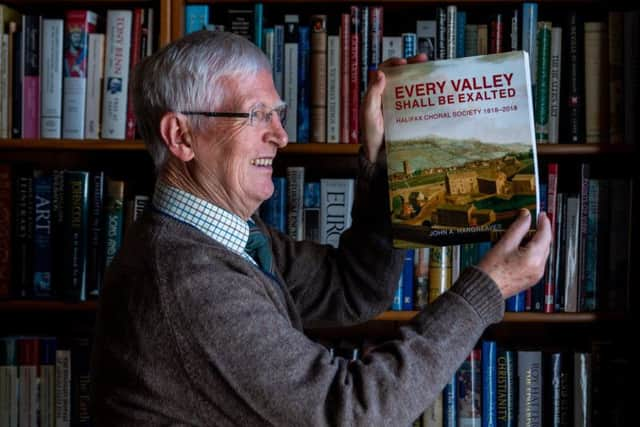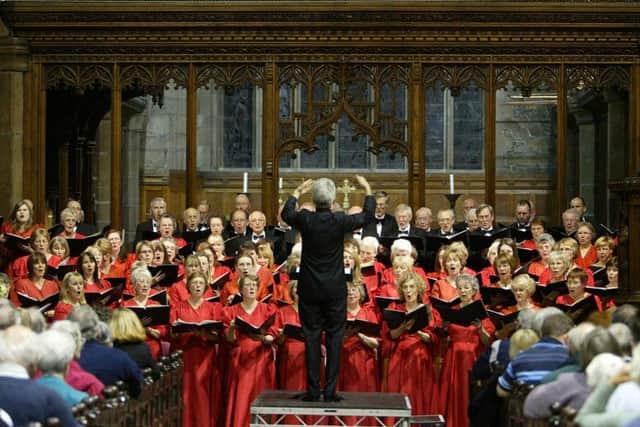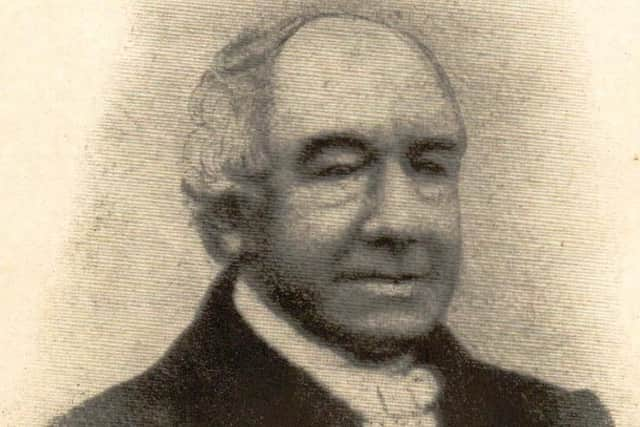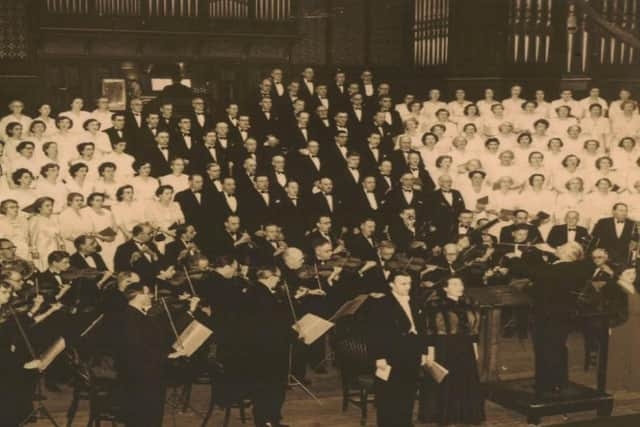This is how Anne Lister's neighbour William Priestley founded the 200-year-old Halifax Choral Society
To look back at the history of Halifax Choral Society is to delve into two centuries of performance from a group that has been at the forefront of Calderdale’s musical life through not only two world wars but countless social and cultural changes too.
It is quite the feat to chronicle the development of Britain’s longest-constituted amateur choral society, which has a remarkable record of more than 200 years of continuous performance since its debut on the concert stage.
Advertisement
Hide AdAdvertisement
Hide AdBut to mark its bicentenary, local eminent historian Dr John Hargreaves has done just that, producing a comprehensive book covering every aspect of its music, personalities and performances from 1818 to 2018.


“You’ve got to recognise that the competition of TV and other forms of cultural entertainment has made the task of recruiting audiences more challenging,” Dr Hargreaves, 72, reflects.
“But the society has, by including newer works and exciting artists, survived for 200 years...It is one of the oldest arts organisations in the country offering, in a medium sized northern town, a continuous programme of performance.”
Advertisement
Hide AdAdvertisement
Hide AdThe society’s beginnings go back to the early 19th century and progenitor William Priestley, a wealthy musician, antiquary and wool merchant. In 1817, Priestley invited like-minded friends to a musical evening at his home, playing the oboe and clarinet to entertain his guests.


There was a clear resolve to formally establish a choral society, bringing together smaller gatherings of singers from across Calderdale.
“The conversation at dinner and during the evening appears to have been the catalyst which ultimately led to the formation and constitution of the Halifax Quarterly Choral Society during the next year,” Dr Hargreaves writes.
An accomplished musician, Priestley contributed to the society as both a soloist and member of the chorus. He was also an avid collector of musical works including from across the continent and he translated foreign scores into English so that they could be performed by the society.
Advertisement
Hide AdAdvertisement
Hide Ad“He remained committed to helping the society develop a broad repertoire,” Dr Hargreaves continues, “which contributed hugely to the society’s high reputation, enabling it to recruit strongly both members and guests soloists.”


Priestley had connections with Anne Lister, the landowner, diarist and “first modern lesbian” who has recently been the subject of popular TV show Gentleman Jack. Dr Hargreaves writes that she often turned to him, her neighbour, for advice on practical matters whilst his wife Eliza was one of her close confidantes.
“He emerged in Gentleman Jack as a somewhat monochrome personality,” Dr Hargreaves claims. “It didn’t reflect his huge involvement in music and his significance in that other sphere, for which the town owes such a debt to him, for bringing into existence the Halifax Choral Society.”
Advertisement
Hide AdAdvertisement
Hide AdThe society played its first concert at Halifax Court House in February of 1818. It became Halifax Choral Society in 1839 and it was during the Victorian and Edwardian eras that Dr Hargreaves says it enjoyed some of its greatest success. “There was a huge confidence around that period,” he says, describing the time as “years of efflorescence”.


It continued to develop its repertoire, with healthy membership numbers. And the opening of Halifax’s Victoria Hall in 1901 provided the society, for the first time, with access to a grand performance venue for its concerts and one that could accommodate a large audience.
“Although [the opening] coincided with the death of the Queen [Victoria] and mourning music was performed to acknowledge that fact, that was a period of huge excitement,” Dr Hargreaves says.
“The town was also becoming more prosperous during that period. Textiles were still dynamic - Dean Clough was the largest manufacturing complex in the world...and music itself embodies and promotes unity and a sense of neighbourliness.”
Advertisement
Hide AdAdvertisement
Hide AdThey say also that music heals, and during the First World War, Halifax Choral Society kept up its concert programme to boost morale, despite several other musical groups suspending performances.
“It was decided to continue to aim to offer an ambitious programme of concerts if only to contribute ‘comfort and relief in those distressing times’ through the uplifting potential of choral music within a mutually supportive communal gathering,” Dr Hargreaves writes.
“Concerts, it was suggested, might also provide opportunities for raising funds for the war effort and help alleviate, to some extent, the difficulties and sorrows of those who suffered the devastating consequences of the conflict.”
When World War Two broke out, there was again careful consideration of whether or not to continue, but a decision was made to press ahead once more. For Halifax, there was an unexpected benefit too. Big name soloists and musicians sought out venues away from the concert halls of large cities that were more vulnerable to bombing attacks.
Advertisement
Hide AdAdvertisement
Hide Ad“The bombing of cities such as Manchester and London made more artists willing to perform in the provinces,” Dr Hargreaves says. “And concert audiences continued attending in the Blitz despite the risk.
“People valued the opportunity to keep going. It was good to get out in the blackout and morale was raised in the war by the resolution of the choral society to not abandon its performances.”
As well as the wars, the twentieth century brought the choir new challenges including the advent of TV, radio and the internet. With all this, and changing music tastes, Dr Hargreaves says the society continues to face challenges today.
Advertisement
Hide AdAdvertisement
Hide Ad“It’s a challenging business in 2019, putting on the programme, financing it and finding the talented individuals to conduct, and the soloists and orchestras to perform,” he reflects.
“People have more than live performances to resource their musical listening,” he adds. “And the technology of musical production in the 20th and 21st century has reached new dimensions.”
Still, the society, which at the weekend performed Verdi’s Requiem, marking the farewell appearance of its conductor and music director of more than three decades - John Pryce-Jones, celebrated a successful bicentenary year and is thriving into its third century of existence and unbroken performance.
Dr Hargreaves talks of a town and community that is immensely proud of its cultural achievements - and too of hardworking leaders and members committed to delivering an inspiring and popular programme. “They are wonderful, enthusiastic performers,” he says. “The quality is high.”
Every Valley Shall Be Exalted - Halifax Choral Society 1818-2018 is published by D&M Heritage Press. Visit halifaxchoralsociety.co.uk